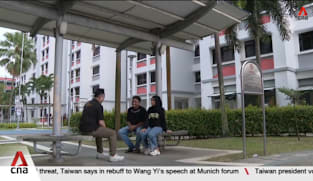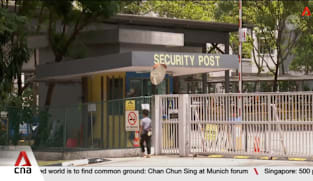Committee of Supply 2024 debate, Day 5: Amy Khor on point-to-point transport review and commuter infrastructure
More people are now relying on point-to-point (P2P) transport operators for their commutes and livelihoods. So, new regulations will be implemented to minimise the impact of service disruptions or operators exiting the market. Senior Minister of State for Transport Amy Khor gave the details in Parliament on Tuesday (Mar 5). P2P operators will have to inform the Land Transport Authority (LTA), commuters and drivers within an hour of any systemic incident that will impair the provision of services. They must also submit a report outlining measures taken to resolve the incident. Operators intending to exit the market will have to notify LTA at least 120 days ahead, double the current period. They will also have to inform the public at least 60 days ahead, to give commuters and drivers time to cash out their electronic wallets and move to other platforms. Dr Khor said measures will also be taken to facilitate a stable supply of taxis and street-hail services, which continue to play an important role for certain commuters and in certain locations. Regulations will be updated to reduce the operating costs of taxis. The statutory lifespan of taxis will be increased from eight to 10 years. Taxis less than three years old will require inspection once a year, down from every six months. The call booking requirement for smaller taxi operators will be gradually removed, given the high costs relative to utilisation. It will also be made easier and cheaper to obtain a taxi driver’s vocational licence. Dr Khor said her ministry is also working with ride-hail services to better cater to the needs of wheelchair users and families with young children, by matching suitable vehicles to them. Meanwhile, another S$1 billion will be set aside to expand the Friendly Streets initiative and build more commuter infrastructure. Friendly Streets will be created in all HDB towns by 2030, as well as in high-activity private estates. More will be done to support walking as the first- and last-mile mode of commuting. This will include building more covered linkways, upgrading more bus stops with senior-friendly features and retrofitting more pedestrian overhead bridges with lifts. More road space will also be repurposed for walking and cycling, with two new projects to begin this year at Zion Road and Sims Place, said Dr Khor.
More people are now relying on point-to-point (P2P) transport operators for their commutes and livelihoods. So, new regulations will be implemented to minimise the impact of service disruptions or operators exiting the market. Senior Minister of State for Transport Amy Khor gave the details in Parliament on Tuesday (Mar 5). P2P operators will have to inform the Land Transport Authority (LTA), commuters and drivers within an hour of any systemic incident that will impair the provision of services. They must also submit a report outlining measures taken to resolve the incident. Operators intending to exit the market will have to notify LTA at least 120 days ahead, double the current period. They will also have to inform the public at least 60 days ahead, to give commuters and drivers time to cash out their electronic wallets and move to other platforms. Dr Khor said measures will also be taken to facilitate a stable supply of taxis and street-hail services, which continue to play an important role for certain commuters and in certain locations. Regulations will be updated to reduce the operating costs of taxis. The statutory lifespan of taxis will be increased from eight to 10 years. Taxis less than three years old will require inspection once a year, down from every six months. The call booking requirement for smaller taxi operators will be gradually removed, given the high costs relative to utilisation. It will also be made easier and cheaper to obtain a taxi driver’s vocational licence. Dr Khor said her ministry is also working with ride-hail services to better cater to the needs of wheelchair users and families with young children, by matching suitable vehicles to them. Meanwhile, another S$1 billion will be set aside to expand the Friendly Streets initiative and build more commuter infrastructure. Friendly Streets will be created in all HDB towns by 2030, as well as in high-activity private estates. More will be done to support walking as the first- and last-mile mode of commuting. This will include building more covered linkways, upgrading more bus stops with senior-friendly features and retrofitting more pedestrian overhead bridges with lifts. More road space will also be repurposed for walking and cycling, with two new projects to begin this year at Zion Road and Sims Place, said Dr Khor.



















